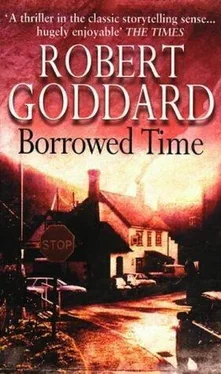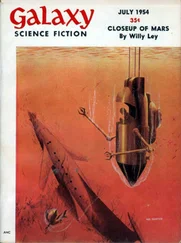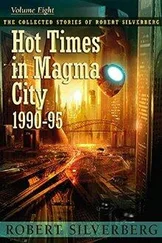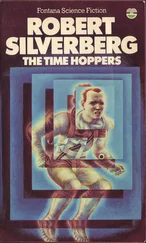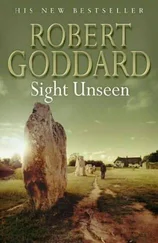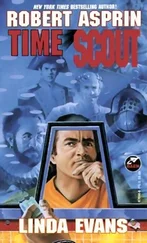Robert Goddard - Borrowed Time
Здесь есть возможность читать онлайн «Robert Goddard - Borrowed Time» весь текст электронной книги совершенно бесплатно (целиком полную версию без сокращений). В некоторых случаях можно слушать аудио, скачать через торрент в формате fb2 и присутствует краткое содержание. Жанр: Триллер, на английском языке. Описание произведения, (предисловие) а так же отзывы посетителей доступны на портале библиотеки ЛибКат.
- Название:Borrowed Time
- Автор:
- Жанр:
- Год:неизвестен
- ISBN:нет данных
- Рейтинг книги:5 / 5. Голосов: 1
-
Избранное:Добавить в избранное
- Отзывы:
-
Ваша оценка:
- 100
- 1
- 2
- 3
- 4
- 5
Borrowed Time: краткое содержание, описание и аннотация
Предлагаем к чтению аннотацию, описание, краткое содержание или предисловие (зависит от того, что написал сам автор книги «Borrowed Time»). Если вы не нашли необходимую информацию о книге — напишите в комментариях, мы постараемся отыскать её.
Borrowed Time — читать онлайн бесплатно полную книгу (весь текст) целиком
Ниже представлен текст книги, разбитый по страницам. Система сохранения места последней прочитанной страницы, позволяет с удобством читать онлайн бесплатно книгу «Borrowed Time», без необходимости каждый раз заново искать на чём Вы остановились. Поставьте закладку, и сможете в любой момент перейти на страницу, на которой закончили чтение.
Интервал:
Закладка:
So far. So awesomely far. Sunlight twinkled benignly on the winding river and gilded the fat wrinkled mud-banks. The Bristol to Avonmouth main road hugged the eastern side of the river and the height I was above it sowed a fleeting illusion in my mind. That it and the few cars moving along it were toys I’d laid out on my bedroom floor as a child. Toys I could pick up or dismantle at will. Then the huge gap of empty air rushed into my consciousness and I stepped back, appalled. Good God almighty. What a thing to do. What an act to have not just the wish but the courage to carry out. To find a foothold and climb onto the railings. And then what? Leap from there? Or lower yourself down until your toes were resting on the narrow sill at the foot of the railings, then turn round and let yourself fall? The deliberation. The decision. And the deed. All reversible. All nullifiable. Until the fraction of a second after letting go, when wind and gravity plucked your freedom away. And your life had only that long plummeting moment to last.
Why had she done it? Standing there in the centre of the bridge, I felt a wave of nausea sweep over me. I stared up into the sky until it had passed. Then I looked down again. And knew. It wasn’t the lies we’d told you, was it, Rowena? It wasn’t the thought that we’d implicated you in a possible miscarriage of justice. Nor the fear that you’d never known your mother for what she truly was. It was none of those things. Not in the end. Not when you came to the point of no return. “She was on the brink,” you’d said of her. “She was about to step off.” I remembered now. “Into the void.” Your words. “She knew it.” Your every word. “And still she stepped.” You had to know, didn’t you? You had to find out. “Why?” I couldn’t tell you. Nobody could. You knew that. And, watching the video, you must have realized it would never be any different. Unless you followed her. Unless you surrendered to the impulse you’d tried to bury. “The thought of it can be so exhilarating.” Yes. Of course. “So tempting.” And so very very final.
It was mid-morning before I left Bristol. I drove slowly, hardly knowing whether it was better to stay or to go. Somewhere near Warminster, I turned on the radio and found myself listening to the cricket commentary from Lord’s. The Test Match was still going on. When it had started, I’d actually been quite interested in the outcome. But Rowena had been alive then. Now it seemed like a transmission from another planet. There were tears filling my eyes as I stabbed the “off” switch. And there was comfort in the silence that followed.
Tuesday came. And with it my appointment in London. After putting in a desultory morning at work, I walked to the station and caught a lunchtime train to Waterloo. Then I took the long way round the Circle line to Bayswater and tracked down Godolphin Terrace.
It turned out to look less grand than it sounded. The houses had all the traditional touches: four stuccoed storeys plus attic and basement, complete with pillared porch and dolphin door-knocker. But some were beginning to look dilapidated. One or two would be ripe for squatters if the residents didn’t watch out. Though Sophie Marsden, I felt sure, could be relied on to do that.
Number 6 was in good order, brasswork polished, paint gleaming. When I rang Sophie’s bell, she answered promptly.
“Robin?”
“Yes.”
“Push when you hear the buzzer. I’m on the second floor.”
I was in. And when I reached the second landing, she was waiting at her door. Newly coiffured, I reckoned, though presumably not for my benefit. But her close-fitting dress made me think, as I followed her into a tastefully furnished lounge, that I might be wrong. Perhaps flirtation was to be her counter to whatever line she expected me to take. If so, I didn’t propose to let it work.
“There’s tea, of course. But I fancy a gin and tonic myself. You?”
“All right.”
I moved to the window while she poured them and gazed down into the street. Sooner than I’d anticipated, she was at my elbow, glass in hand, smiling enigmatically. “Afraid someone might be following you, Robin?”
“No. Of course not.”
“Here’s your drink. Let’s sit down.”
A sofa and two armchairs were arranged around a low table in front of a huge marbled fireplace, an aspidistra in a copper pot filling the grate. A mass of gold-edged invitations crowded out the bric-à-brac on the mantelpiece, above which hung a gloomy oil painting of what looked like the Tower of Babel. Sophie took one end of the sofa and patted the cushion of the adjacent armchair. I sat down and sipped at my drink, resisting a powerful urge to take several large gulps. Then I noticed the Bantock hanging on the wall facing me. As I’d been intended to, of course. A Madonna and child. Or an old woman with a doll. It was hard to tell.
“What’s your opinion of Expressionism, Robin?”
“I’m really not qualified to-”
“We’re all qualified, surely. To judge whether something’s good or bad. Right or wrong. I’ve never been entirely sold on Oscar’s work myself.”
“Then why-”
“As an investment. Louise was the enthusiast. I trusted her taste. And it’s paid off. Though ironically only because Oscar’s dead. And Louise with him.”
“Sophie, I didn’t come here to-”
“Discuss art? No. I suppose not.” She jiggled the ice in her glass and took rather more than a sip. “Ah, I needed that.” She smiled. “The first taste is always the best, isn’t it? Of everything.”
“Why did you say what you did to Seymour?”
“You believe in coming to the point, don’t you? Is that what-Well, we’ll come back to that later, I expect.”
“Come back to what?” She was playing the same game with me she’d started in Sapperton. The same cat-and-mouse progression towards a meaning we never quite reached. And the resemblance to Louise was growing again. Or I was noticing it more. But perhaps resemblance wasn’t the right word. It was more an imitation. An expert re-creation of parts of her she knew I’d recognize. The soft voice. The toss of the head. The balancing on the brink.
“I was shocked to hear about Rowena. A young life snuffed out. So tragic. I always envied Louise her children, never having had any myself. But I suppose they bring as much grief as joy. How is Keith bearing up?”
“I haven’t seen him. Or Sarah. Or Paul.”
“Ah. Giving them a wide berth, are you? I quite understand. I thought I ought to do the same. In the circumstances.”
“I’ve spoken to Bella.”
“Of course. Your sister-in-law. Lady Paxton, I should say. Though the name doesn’t quite fit, does it?”
“She tells me they’re all extremely upset. As you’d expect. And they hold you and me to blame for what’s happened. As you’d also expect.”
“So we’re in the same boat, then.”
“In a sense.”
“Mmm.” She leant back and stared up thoughtfully at the ceiling. “In that case, why don’t you tell me why you cooperated with the charming Mr. Seymour.”
“To stop him harassing Rowena.”
“You think he meant to?”
“I don’t know. It was an effective lever of persuasion, though. And once he’d got me talking, he knew a little creative editing would do the rest.”
“That’s your cover story, is it?”
“It happens to be-”
“Come on, Robin. Nobody’s going to swallow it, least of all me. Neither of us thought Rowena would be so… drastic. So… extreme. It wasn’t our fault.”
“Wasn’t it?”
“No. So let’s stop pretending we were set up by Seymour. Even the papers seem to have given up portraying him as the villain of the piece. We both knew exactly what we were doing. And why.”
Читать дальшеИнтервал:
Закладка:
Похожие книги на «Borrowed Time»
Представляем Вашему вниманию похожие книги на «Borrowed Time» списком для выбора. Мы отобрали схожую по названию и смыслу литературу в надежде предоставить читателям больше вариантов отыскать новые, интересные, ещё непрочитанные произведения.
Обсуждение, отзывы о книге «Borrowed Time» и просто собственные мнения читателей. Оставьте ваши комментарии, напишите, что Вы думаете о произведении, его смысле или главных героях. Укажите что конкретно понравилось, а что нет, и почему Вы так считаете.
